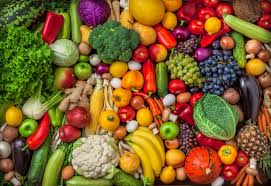All vegan and vegetarian organizations strive to raise awareness of and advocate for how veganism and vegetarianism are linked to animal rights, animal welfare, environmentalism, human rights and human health. In addition, the logos and labels developed by these organizations are used to take advantage of expanding markets for packaged vegan and vegetarian food products.
The European vegetarian label has been adopted by the European Vegetarian Union and is currently licensed for use in nearly twenty European countries. National vegetarian groups manage this label in their own countries. Today, the European vegetarian label is commonly shown on food products and restaurants in Europe, but some products bearing this label are also exported to the United States.
The European vegetarian label is a vegetarian label, not a vegan label. Therefore, milk, dairy products and food containing eggs may carry this label. However, permitted eggs or egg products should not be from chickens raised in cages. The only requirement for dairy products is that they do not contain animal enzymes. The European vegetarian label does not require milk and dairy products to be obtained from pasture-free and uncaged cows. In addition, all food products bearing this label should not contain gelatin and similar animal by-products.
How is Vegetarian Product Certification Done?
Producer companies must take the vegetarian product certification path to prove that they produce vegetarian products. In order to affix the vegetarian label on their products and to offer reliable vegetarian products to consumers, manufacturers must apply to an impartial and independent accredited organization that provides certification services, with a detailed list. This list should include the ingredients of the food products to be labeled and, if any, additives. These lists should generally be prepared in descending order according to the amount of certain ingredients. Applicants should also consider a long list of additives and indicate whether they are used and whether they are of animal origin. In addition, on these lists, each food product must be declared as lacto-ovo vegetarian, lacto-vegetarian, ovo-vegetarian or vegan.
Approximately 95 percent of content control is based on written specifications and certificates by manufacturers and their suppliers. Essentially, many companies are certified by the International Standards Organization (ISO) and follow Hazard Analysis and Critical Control Points (HACCP) criteria that address food safety issues, including food contamination. This is important in terms of knowing that the production process of the company is strictly regulated in the audits carried out by the authorized institution.
After the inspections, companies that are found to meet the necessary criteria and are approved are allowed to use a vegetarian label, and vegetarian product certification is performed.
From this point on, products bearing the vegetarian label meet the following criteria of the accreditation body:
- It is freed from slaughterhouse by-products such as animal meat and carcass oils.
- It has not been tested on animals.
- If the product contains eggs, only free-run chicken eggs and egg products are used. (Standards include flock sizes not exceeding a maximum of 1000 animals per hectare, poultry houses with dry litter, perches for perches and sufficient natural light instead of artificial light, do not include beak trimming and artificial egg yolk colorants).
- It does not contain genetically modified organisms (GMOs).
- It does not contain cross contamination with non-vegetarian products.
Consumers are faced with many questions about the standards used to determine whether a food product is truly vegetarian. Could an ingredient list and supplier certificates provided by the manufacturer be sufficient to guarantee the content of a food product? Is there a food technologist or a similarly qualified person at the certification body who checks the lists and determines that the ingredients are not really derived from the animal? How far back is it necessary to go in the supply line of these foodstuffs to make sure they are truly vegetarian?
In order to eliminate these concerns and build trust in consumers, it is necessary to choose the certification body correctly and to question the accreditation of this organization.
TÜRCERT Technical Control and Certification Inc., accredited by national and international organizations, closely follows the developments in the world in the field of science and technology and has a strong staff that constantly improves itself. It also uses modern test equipment and applies test methods accepted all over the world. TÜRCERT also offers vegan and vegetarian certification services within the scope of testing and certification services it provides to companies from all sectors with this strong infrastructure.



